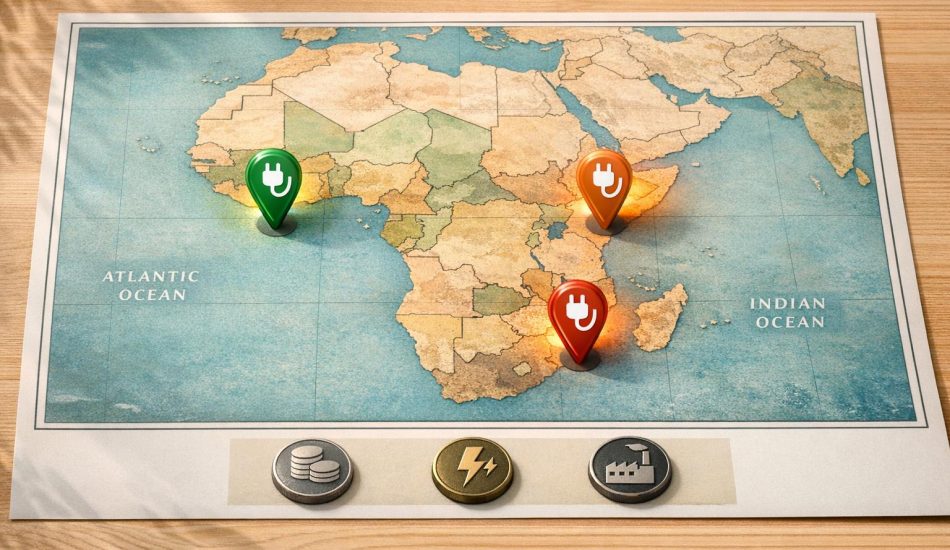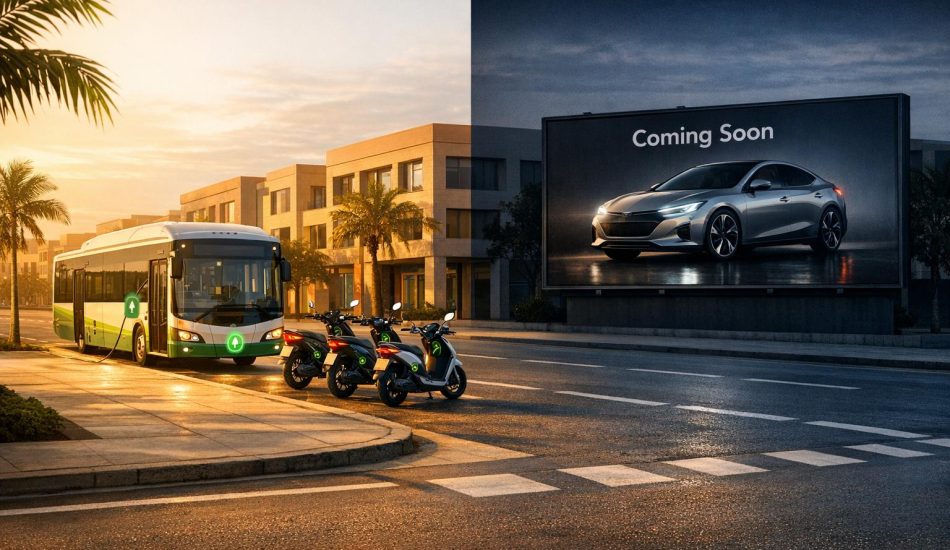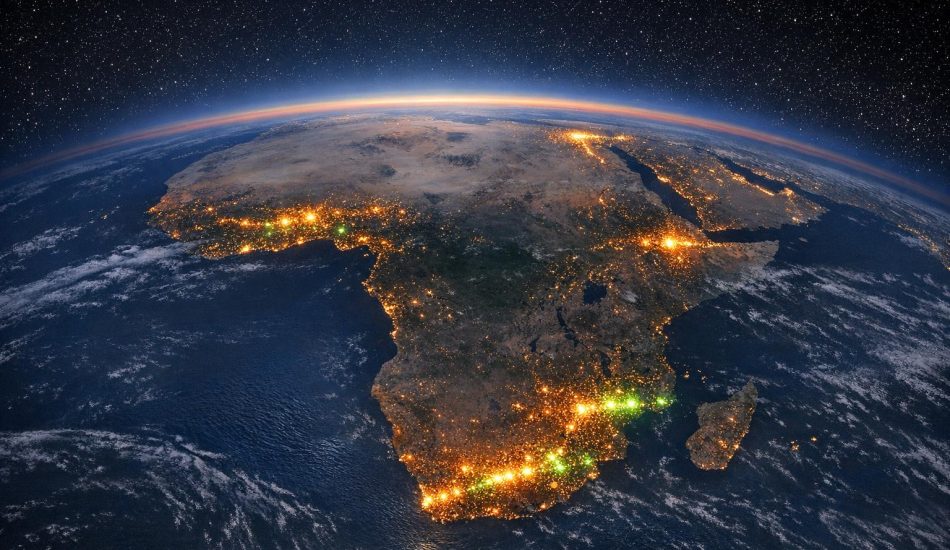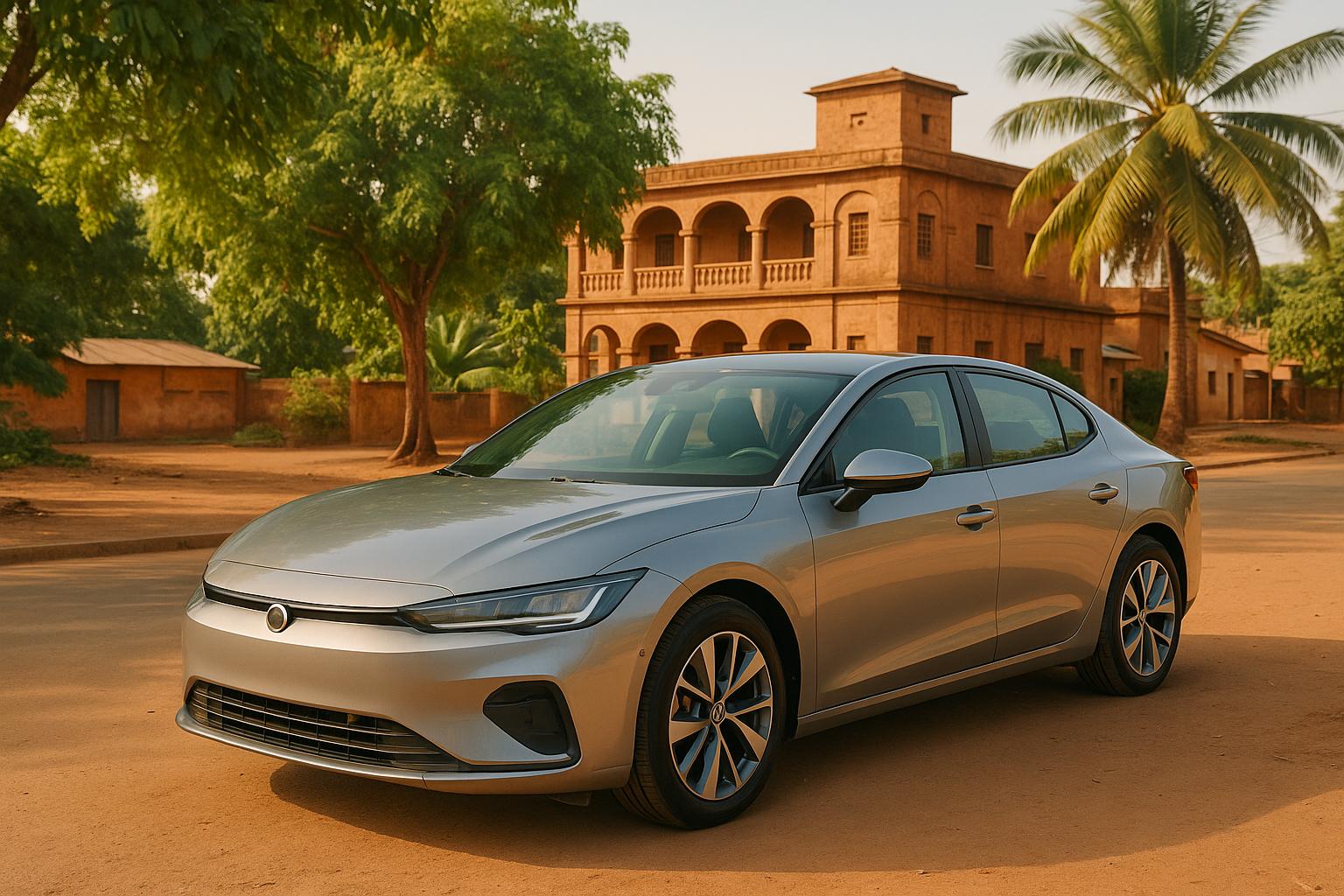
Electric cars are gaining traction in Togo, offering lower running costs and cleaner alternatives to traditional vehicles. In 2025, you can choose from brands like Tesla, BYD, and Hyundai, with options tailored for city driving or tougher terrains. Platforms like EV24.africa simplify the buying process by handling imports, customs, and delivery while offering flexible payment plans. Here’s what you need to know:
- Cost Savings: Reduced import duties on EVs make them more affordable compared to gas-powered cars.
- Delivery Options: Vehicles can be shipped via Roll-on/Roll-off, Full Container, or Shared Container services.
- Financing: Flexible payment plans, trade-in programs, and corporate discounts are available.
- After-Sales Support: Warranty coverage, trained technicians, and spare parts ensure smooth ownership.
For a hassle-free experience, EV24.africa provides transparent pricing, local support, and end-to-end import solutions. Ready to make the switch? Explore your options today.
Electric Vehicle Market in Togo: Current Status
Togo’s electric vehicle (EV) market is still in its early stages but shows a lot of potential, especially in the two-wheeler segment. While the country lacks the extensive infrastructure seen in more developed regions, recent advancements hint at a growing shift toward electric mobility.
One of the key players in this space is Spiro, which has made a significant impact in Togo by setting up battery swap stations in major cities. Across Africa, Spiro operates 600 stations and has completed over 7 million battery swaps, serving a community of 12,000 riders. Instead of focusing on traditional charging stations for cars, the emphasis in Togo has been on battery swapping for motorcycles – a practical approach, given the widespread use of motorcycles in the country.
Government Policies and EV Incentives
At the moment, Togo lacks well-publicized government incentives or specific policies to promote EV adoption. Unlike other markets that offer tax breaks, subsidies, or reduced import duties for EVs, Togo has yet to roll out similar measures. This means that the growth of the EV market is largely driven by economic factors, such as cost savings offered by electric vehicles.
That said, the government’s broader focus on infrastructure development could eventually lead to more targeted support for EVs. For now, market dynamics and the economic advantages of EVs – like lower operating costs – are the primary drivers of growth.
Market Growth Trends
The EV market in Togo has been steadily growing, with notable developments since 2023. One major milestone came in February 2024, when Spiro launched the country’s first Automated Battery Swap Station in Lomé.
"We are excited to launch the first Automated Battery Swap Station in Togo, a significant development in our mission to enhance electric mobility across Africa", said Rahul Gaur, Head of Spiro Togo.
By May 2024, Spiro plans to add 50 more automated battery swap and charging stations. These stations are particularly appealing to commercial users, such as taxi drivers, who report a 15–20% increase in revenue when switching to Spiro’s electric motorcycles. This boost is largely due to reduced maintenance costs compared to traditional combustion motorcycles.
The EV aftermarket, which includes maintenance, repair services, and upgrades, is also evolving and contributing to market growth. However, challenges remain, especially the limited charging infrastructure for electric cars. Spiro’s CTO, Samir Mishra, highlighted the company’s commitment to transparency and safety:
"Our automated swap stations, paired with Spiro batteries, represent the pinnacle of safety and quality in the EV market. These stations are designed to offer our customers a seamless and secure experience, ensuring that every swap transparently conveys the exact value customers are paying for".
Although comprehensive sales data for electric cars is not yet available, the rapid expansion of infrastructure and positive feedback from early adopters suggest that 2025 could be a turning point for EV adoption in Togo. These developments are paving the way for better EV purchasing options in the near future, making it an exciting time for prospective buyers in the region.
Best Electric Car Models Available in Togo
The electric vehicle scene in Togo is steadily growing, with international manufacturers introducing models designed to handle the country’s unique road and climate challenges. These vehicles are crafted to meet the demands of both city life and tougher terrains. Let’s take a closer look at some of the leading brands and their standout models.
Popular Brands and Models
EV24.africa offers an impressive selection of electric vehicles from well-known brands like Tesla, BYD, Hyundai, Leapmotor, Toyota, Geely, and Dongfeng. These manufacturers provide a variety of options, from compact cars ideal for navigating city streets to models with extended driving ranges for longer trips. For a detailed comparison of features, EV24.africa is a great resource to help you find the perfect fit.
Key Features to Consider
When exploring these popular brands, it’s important to focus on specific details. Pay attention to factors like driving range, charging time, battery durability, and warranty coverage. Opt for models that offer a sturdy build and dependable service, ensuring they can handle both urban commutes and rural adventures. For the most accurate and current information, check out the detailed listings on EV24.africa.
Electric Vehicle Prices in Togo: 2025 Costs
When considering the cost of buying an electric vehicle (EV) in Togo, it’s essential to look beyond the sticker price. Factors like import duties, local fees, and financing arrangements all play a role in determining the final expense. Fortunately, Togo has taken steps to make EVs more affordable by reducing or even eliminating import duties and taxes, giving EV buyers a noticeable financial edge.
Price Breakdown by Model
Electric vehicle prices in Togo can vary significantly depending on the model, brand, and how the car is imported. Thanks to Togo’s policy of slashing import duties and taxes on EVs, these vehicles are now a more appealing option compared to traditional gas-powered cars. For context, conventional imported vehicles are subject to a hefty 53.5% duty on their CIF (Cost, Insurance, and Freight) value. In contrast, EV buyers enjoy substantial savings due to the reduced or waived rates, potentially saving thousands of dollars.
However, other mandatory costs still apply. Local fees typically range between $1,500 and $2,500, and there’s an additional $175 charge for the Electronic Cargo Tracking Note per vehicle. Shipping costs are another factor to consider. Shipping an EV from the U.S. to Lomé, Togo, averages between $1,202 and $1,429, depending on the size of the vehicle and the chosen shipping method. Once the vehicle arrives at the Lomé terminal, pier fees and other shipment-specific costs may also come into play.
It’s important to account for these additional charges, including customs and any unforeseen fees, to get a full picture of the total cost. Once you’ve tallied everything up, you can explore financing options to make the purchase more manageable.
Financing and Payment Options
EV24.africa offers flexible financing solutions that break down the cost of an EV into manageable installments. Their pre-approval process works with local banks to provide affordable monthly payment plans tailored to your credit profile. This makes purchasing an EV smoother and ensures you’re shopping within your budget.
For businesses, corporate financing options are available, which include perks like bulk purchase discounts and payment terms designed to align with cash flow cycles. This is particularly useful for companies looking to transition their fleets to electric vehicles.
If you’re upgrading from a conventional car, EV24.africa’s trade-in programs allow you to use the value of your current vehicle to offset the cost of your new EV. This is a great way to reduce your upfront expenses while making the switch to electric.
Flexible payment options are also available, with the ability to pay in either local currency or USD, helping to minimize exchange rate risks. Down payment requirements typically range from 20% to 30% of the total vehicle cost, though this can vary depending on your financing partner and credit history. Buyers with strong credit or existing relationships with lenders may even qualify for lower down payments, making EV ownership more accessible than ever.
sbb-itb-99e19e3
How to Buy an Electric Car in Togo
As Togo’s electric vehicle (EV) market grows, purchasing an EV has become more accessible, especially with platforms that manage the import process. A trusted service like EV24.africa simplifies the experience by handling everything from international shipping to meeting Togo’s specific import requirements.
Using EV24.africa to Purchase EVs
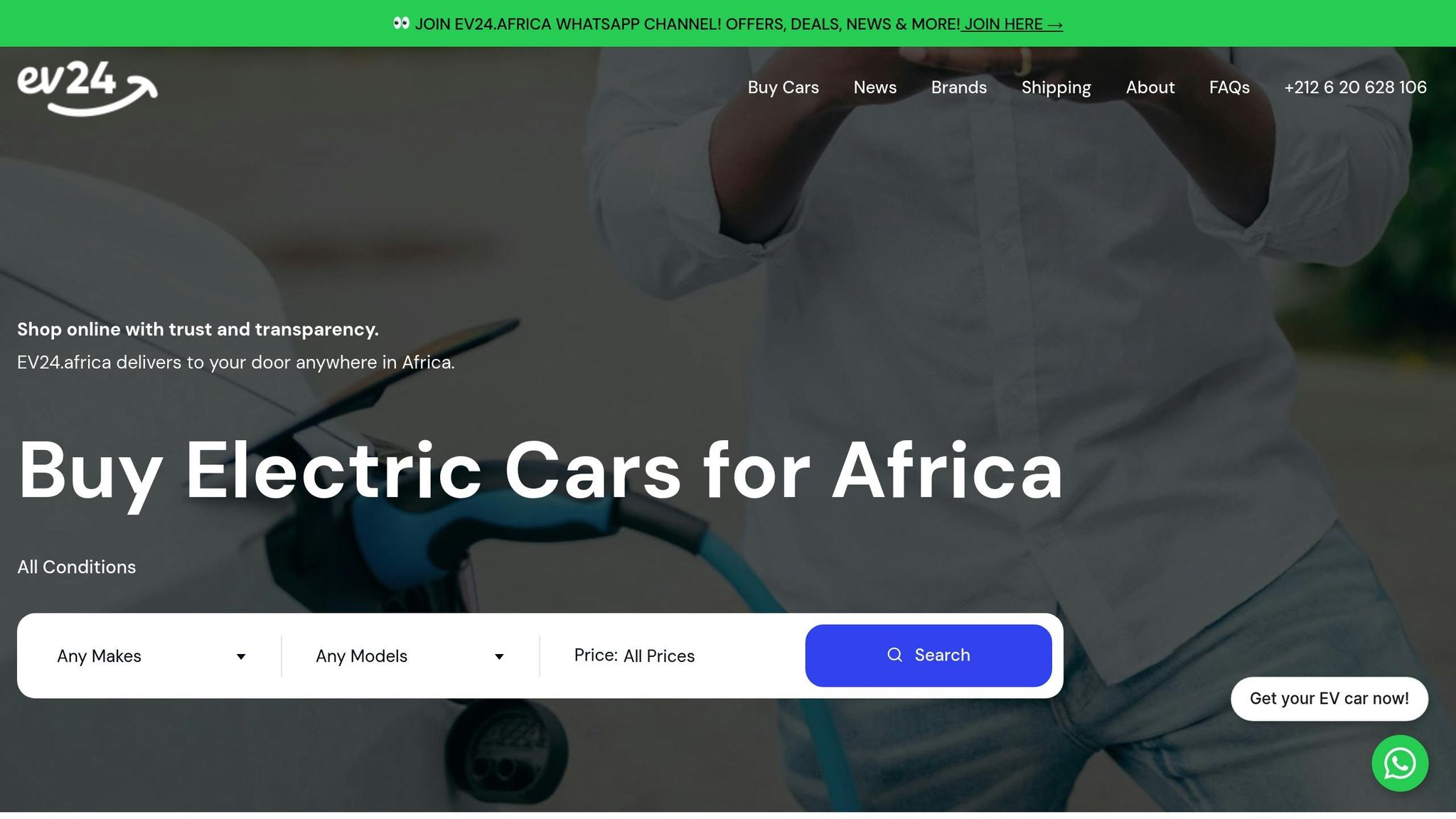
EV24.africa takes the hassle out of buying an electric car by offering an end-to-end solution. The platform connects buyers in Togo to a global network of suppliers from Europe, Asia, North America, and Japan. Whether you’re looking for a new or used EV, they provide a variety of options with clear pricing and detailed specifications.
The process starts with browsing EV24.africa’s extensive inventory. You’ll find everything from compact passenger cars to luxury sedans and light commercial vehicles like vans and small trucks. Each listing includes detailed specifications, making it easy to compare models and features before choosing the right one.
Once you’ve selected a vehicle, you can request a quote directly through the platform. EV24.africa takes care of all shipping arrangements, offering options like Roll-on/Roll-off (RoRo) or container shipping, along with flexible commercial terms. Most vehicles are shipped to the Port of Lomé, but door-to-door delivery is also available. For added convenience, their Delivered Duty Paid (DDP) service covers customs clearance, local registration, and import taxes. Alternatively, Free on Board (FOB) terms allow you to manage shipping yourself.
"At EV24.africa, we simplify the process of importing and buying electric vehicles in Africa. Our expertise ensures a seamless, transparent, and stress-free experience, so you can focus on driving the future of mobility." – EV24.africa
Throughout the entire process, EV24.africa provides customer support to ensure compliance with Togolese regulations and address any concerns. With transparent pricing, no hidden fees, and flexible payment options, the platform makes the buying journey straightforward and stress-free.
Electric Car Buying Checklist
To ensure a smooth purchase, use this checklist:
- Verify the VIN: Check the Vehicle Identification Number (VIN) against all documents and confirm the vehicle’s history.
- Battery Health for Used EVs: Request a battery health report and check warranty coverage for used models.
- Charging Compatibility: Confirm that the vehicle is compatible with local charging infrastructure and determine if additional equipment is needed.
- Warranty Details: Review warranty terms, including duration and how claims are processed locally.
- Service Availability: Research authorized service centers or trained mechanics in Togo for your chosen EV brand.
- Import Documentation: Ensure all necessary documents – such as the original title, bill of sale, export certificate, and required certifications – are correctly prepared. EV24.africa assists with this process.
- Cost Calculations: Factor in shipping fees, local charges, customs duties, and other expenses to determine the total cost.
- Insurance: Arrange local insurance before the vehicle is delivered.
Delivery and After-Sales Support in Togo
Getting your electric vehicle (EV) delivered to Togo and ensuring reliable after-sales support is a key part of making your EV journey smooth and worry-free. Knowing your delivery options and the kind of support available after purchase can help you make the right decisions and protect your investment.
Delivery and Logistics Solutions
EV24.africa provides three main shipping options to bring your EV to Togo:
- Roll-on/Roll-off (RoRo) Service: Your vehicle is driven directly onto a shipping vessel, secured, and transported to its destination.
- Full Container Load (FCL): This option offers your EV extra protection by placing it in a dedicated container, making it ideal for luxury or high-value vehicles.
- Shared Container: A budget-friendly choice where your EV shares container space with others, offering more protection than RoRo, especially for mid-range vehicles.
Most vehicles are delivered to the Port of Lomé. From there, EV24.africa handles local transportation, including door-to-door delivery in cities such as Lomé, Sokodé, and Kara. Once your EV arrives, they also provide immediate after-sales support to ensure everything is in top shape.
After-Sales Services and Customer Support
Once your EV is delivered, having access to reliable after-sales support is essential for keeping it running smoothly. One important aspect is warranty coverage, especially for EV batteries. Many manufacturers offer generous warranties that cover battery replacements if performance drops over time.
As your EV ages, specialized repair services become increasingly important. Unlike traditional vehicles, EVs require trained technicians with the right tools and expertise to handle their advanced systems.
"If you have an electric car it’s likely still under warranty, so it would be unwise to do your own work." – Brian Good, Dirt Digger, Litigation Analyst
Authorized service centers also have access to advanced diagnostic software provided by manufacturers, which helps in identifying and fixing issues efficiently. Using genuine parts is another advantage of these centers, as it ensures your EV maintains its performance and longevity.
Routine maintenance for EVs is simpler compared to traditional cars. Tasks like tire rotations, wiper replacements, and brake fluid checks are the norm. Additionally, regenerative braking helps extend the life of your brakes.
While EVs generally cost less to maintain over time, specialized repairs can be pricier due to the complexity of their components. That’s why comprehensive after-sales support is so important. A well-stocked inventory of spare parts and regular servicing can extend the life of components by up to 30% and reduce repair times by as much as 40%.
Conclusion: Making a Smart EV Purchase in Togo
Buying an electric vehicle in Togo in 2025 comes with both economic savings and a cleaner environmental footprint. With more models available from reliable brands like Tesla, BYD, and Hyundai, and flexible financing options, owning an EV has never been more within reach.
Picking the right platform to guide your purchase is key. EV24.africa makes the process straightforward with transparent pricing, no hidden fees, and upfront quotes you can trust. Whether you opt for the convenience of their DDP service or prefer more involvement with FOB terms, they manage everything – from sourcing to customs clearance and even local registration.
To top it off, EV24.africa ensures a smooth experience with services like door-to-door delivery and responsive customer support. Whether you’re in Lomé, Sokodé, Kara, or other major cities, you can count on reliable delivery and prompt after-sales assistance to keep your EV journey worry-free.
Ready to make the switch? Explore detailed specs and honest pricing on EV24.africa. With their proven import process and dependable local support, you can confidently step into the future of driving in Togo.
FAQs
Why should I choose EV24.africa to buy an electric car in Togo?
EV24.africa takes the hassle out of buying an electric car in Togo by handling everything for you. From sourcing and shipping to customs clearance and delivery, they manage every step while ensuring compliance with local laws. Their clear pricing, flexible payment plans, and dependable logistics make electric vehicles easier to access and more budget-friendly. With EV24.africa, you save time, skip the stress, and enjoy a smooth, personalized experience.
How does the absence of government incentives in Togo impact the cost and adoption of electric vehicles?
The lack of government incentives in Togo means that the upfront cost of electric vehicles (EVs) remains steep, which can deter many potential buyers. In other countries, measures like tax credits or subsidies have proven effective in lowering costs and boosting EV adoption. Without such support, EVs in Togo are often priced higher than traditional vehicles, making it harder for them to gain traction in the market.
This affordability barrier poses a significant challenge to the country’s shift toward electric mobility. Price plays a critical role in encouraging widespread adoption, and without incentives, progress may be slower. On a brighter note, as the global EV industry expands and production costs drop, EVs could gradually become more affordable, even in markets without local financial support.
What should buyers know about charging stations and battery swapping options for electric cars in Togo?
Togo’s EV charging infrastructure is steadily growing, with ambitious plans for significant expansion by 2025. While charging stations are becoming easier to find, some areas may still have limited coverage. Additionally, battery swapping stations are being introduced as a quicker alternative to traditional charging, and these are expected to become more widespread as the network develops.
If you’re considering purchasing an electric vehicle, it’s important to check the availability of charging or swapping stations near your area. Keeping up with the latest developments in Togo’s EV infrastructure can ensure you have convenient access to recharging options as the market continues to grow.


